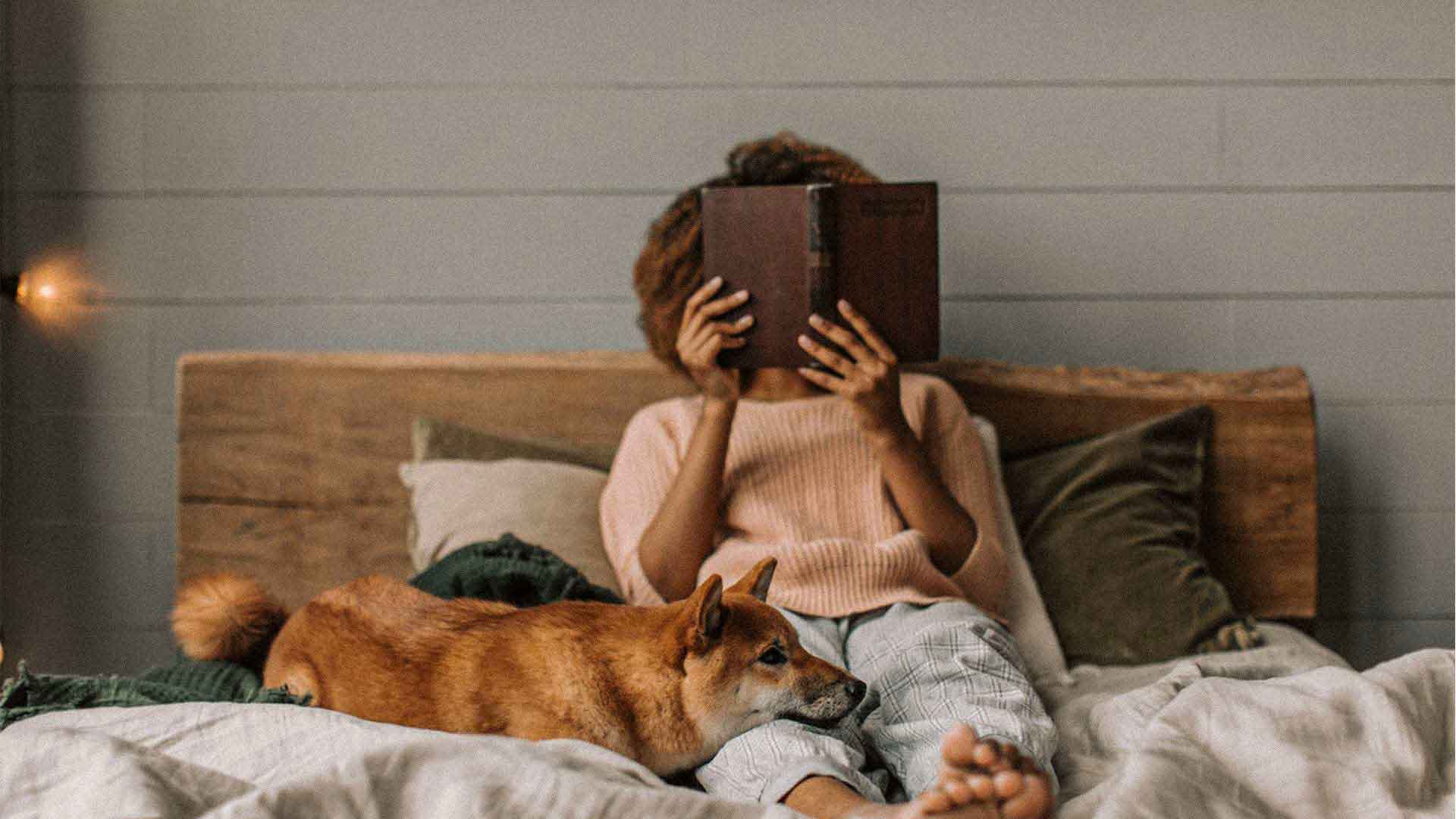Have you ever spent over an hour trying to fall asleep? Counting down the time with every passing minute until that dreadful alarm wakes you? Maybe you counted sheep forward then backward, but nothing helped. If quality shuteye is a constant struggle, creating an unwinding routine at night might help. A consistent night routine is one of the best self-care practices we can do to help prep us for bed. Here’s 4 tips to help you get started.
First, why is a night routine important?
When you’re awake – your mind and body speeds through the day at 500 miles per hour. You move from one task to the next with minimal breaks to get all your to-dos done. So, it’s not surprising that your body may need time to slow down. A night routine involves the practice of setting aside time (about 60-90 mins) for your body and mind to unwind, relax and prep for peaceful slumber.
1. Dim the lights and refrain from using electronic devices
Your classic bedtime routine might include: brushing your teeth, washing your face and then scrolling through reels in bed. And while this might be your time to catch up on recent trends, it might be affecting your sleep…not in a good way. Exposure to blue light at night can suppress the production of melatonin, a sleep hormone your body makes.1 What’s more, both light and darkness affect your circadian rhythm (sleep-wake cycle) which help carry out essential processes in your body. Staying away from screens at least 30 minutes before bed can help your body to relax and promote better zZz’s.
2. Bedtime stories are not just for kids
If you loved bedtime stories as a kid – try adding stories to your nightly ritual. Bedtime stories help distract your mind from the countless thoughts and worries of your busy day.
You can try listening to a podcast or give audiobooks a go! If you’re a reader, books work well too – but resort to old-school habits with a hardcover and actual paper. E-readers may be convenient, but the light can affect your circadian rhythm and make you less alert in the morning.2
3. Enjoy your favorite tunes, and better yet, sing like no one’s listening!
“Music washed away from the soul the dust of everyday life.” – Berthold Auerbach
I know I’m not the only one who feels better (and lighter) after belting out the lyrics to the songs I love most. Creating a playlist that helps calm you after a long and tiring day will not only help lighten your mood but listening to music before bed can positively impact sleep quality, sleep efficiency and energy too.3
4. A warm shower works wonders
Want another reason to soak under the water for a tad bit longer? Whether it be a bath or a shower, warming your palms and feet helps set the tone for your body that it’s time for bed. Not only does it feel like you’re washing away the day’s stress, but the warmth of the water promotes the dilation of blood vessels in the skin, which can induce a feeling of calm and sleepiness.4 The caveat: for some, a hot shower can be relaxing while for others it can be energizing, so you’ll need to find a temp that works best for you.
Takeaway
In a perfect world, we’d all fall asleep as soon as our head hits the pillow. But most of us need time to relax and prepare for bed. Small shifts in your night routine can help your body to unwind for a better night’s rest. Your night routine should include activities that you enjoy but are also relaxing.
For more relaxing techniques, read How does yoga relieve stress?
About Gina
Gina is a Registered Associate Nutritionist (ANutr) and holds a Bachelor of Science degree in Human Nutrition from London. She believes nutrition is all about choosing to respect yourself & your body by making smart yet enjoyable choices everyday.
Do you have questions about supplements? Reach out to one of our experts, or take Persona’s free nutrition assessment, and learn exactly what you need to take your wellness to the next level.
*These statements have not been evaluated by the Food and Drug Administration. This product is not intended to diagnose, treat, cure, or prevent any disease.
This information is not intended as a substitute for the advice provided by your physician or other healthcare professional, or any information contained on or in any product label or packaging. Do not use the information from this article for diagnosing or treating a health problem or disease, or prescribing medication or other treatment. Always speak with your physician or other healthcare professional before taking any medication or nutritional, herbal, or homeopathic supplement, or using any treatment for a health problem. If you have or suspect that you have a medical problem, contact your health care provider promptly. Do not disregard professional medical advice or delay in seeking professional advice because of something you have read in this article.

